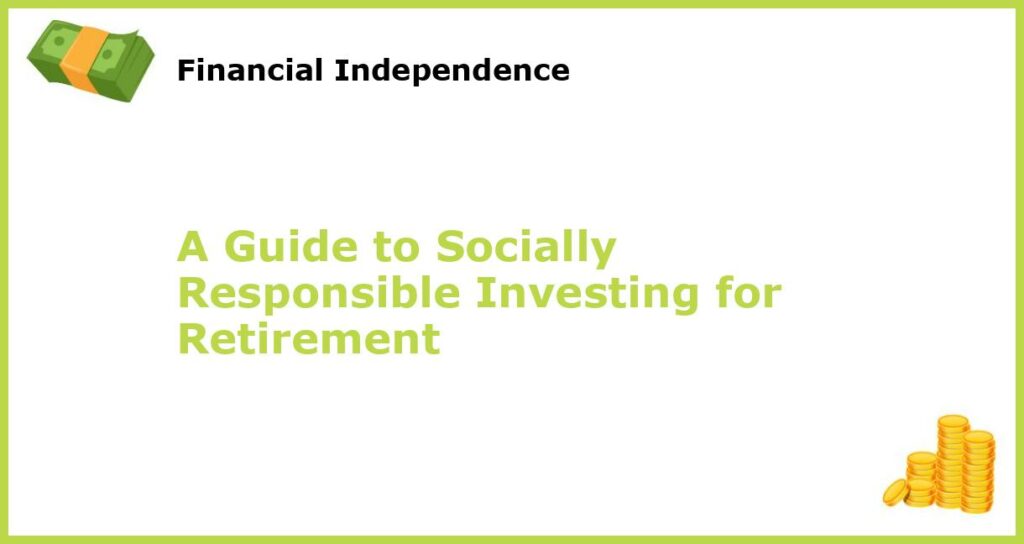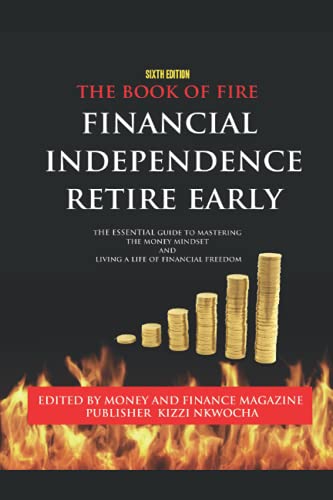Retirement investing does not have to mean forfeiting your values. One way to align your investments and personal beliefs is through Socially Responsible Investing (SRI).
What is Socially Responsible Investing?

Socially responsible investing (SRI) is an investment strategy that considers both financial return and societal good. It involves investing in companies that prioritize social and environmental sustainability, ethical practices, and good governance. The primary objective of SRI is to enable investors to align their personal values with their investment portfolio. The purpose of sustainable investing is to encourage companies to use resources responsibly, reduce risk, and sustain good governance practices while remaining profitable.
How Does SRI Work?

SRI investors use various methods to select companies that meet their environmental, social, and governance criteria. One of the most popular methods is screening, which involves excluding companies that produce harmful products or engage in unethical practices. Screening may be negative or positive. Negative screening excludes companies that don’t align with the investors’ values while positive screening involves identifying companies that are committed to sustainable practices. SRI investors may also use a shareholder engagement strategy that encourages companies to improve their ESG (environmental, social, and governance) practices.
Why Consider SRI for Retirement Investing?

SRI investors are not more concerned about financial returns than other investors but consider environmental and social impacts of their investments. Retirees who have a long-term investment horizon and are passionate about social and environmental issues may find SRI a worthwhile investment strategy. The ultimate aim of SRI is to achieve both social and financial returns. It can enable retirees to support companies that align with their values while earning a financial return.
What are the Benefits of SRI?

SRI offers various benefits, some of which are highlighted below:
- SRI promotes sustainability: By investing in sustainable companies, SRI investors encourage sustainable practices to manage natural resources without compromising future generations’ ability to thrive. Retirees who don’t want to prioritize profits over the planet can invest SRI options as it can help them support these companies.
- Risk mitigation: SRI investors can mitigate risks by avoiding companies with poor environmental or social practices. Companies that prioritize improving their ESG practices have demonstrated their commitment to long-term sustainability.
- Potential Return: Although it’s not guaranteed, investing in sustainable companies can potentially earn a higher financial return in the long run.
What are the Drawbacks of SRI?

While SRI can offer several benefits, there are also some drawbacks to consider:
- SRI can limit investment options: SRI is a relatively new investment strategy, making it available in limited options. Investors may not have the opportunity to invest in some companies, industries, or sectors.
- Higher fees and expenses: One downside to investing in specialized SRI funds is that they often come with higher fees and expenses compared to traditional funds.
- Lower Diversification: Restricted investment selections can result in reduced portfolio diversification. SRI investors should ensure their portfolios are well-diversified by combining SRI funds with traditional funds.
What are Some SRI Investment Options?
There are various SRI investment options, potential SRI investors should take time to research and evaluate investment products before investing. Some of the SRI investment options are:
- ETFs: Exchange-Traded Funds (ETFs) are a popular SRI investment option. SRI ETFs typically follow an index of socially responsible companies and trade on global stock exchanges.
- Mutual funds: Mutual funds comprise a diversified mix of investments with different companies and industries. SRI funds focus on companies with excellent ESG scores.
- Direct Stock Investments: Investors can also choose to invest directly in company shares that prioritize social responsibility.
How to Evaluate SRI Investment Options?
SRI investors must evaluate SRI investment options based on several factors, such as the company’s environmental, social, and governance practices, financial performance, fees, and historical performance to make informed investment decisions. Rather than relying solely on a fund’s marketing materials or categories, investors should independently assess each investment option’s objective data.
How to Get Started with SRI?
Retirees interested in SRI should research potential investment options and consult with a financial advisor or robo-advisor to determine which options align with their values and long-term financial goals. Successful SRI investing requires a thorough evaluation of investment options, which should reflect personal and financial priorities.
What is the Future of SRI?
The future of SRI is promising, thanks to increasing investor awareness and a changing societal landscape. As the current generation becomes more conscious of environmental and social issues, SRI investment options are likely to continue to grow, providing retirees with more opportunities to invest in companies that reflect their values.







